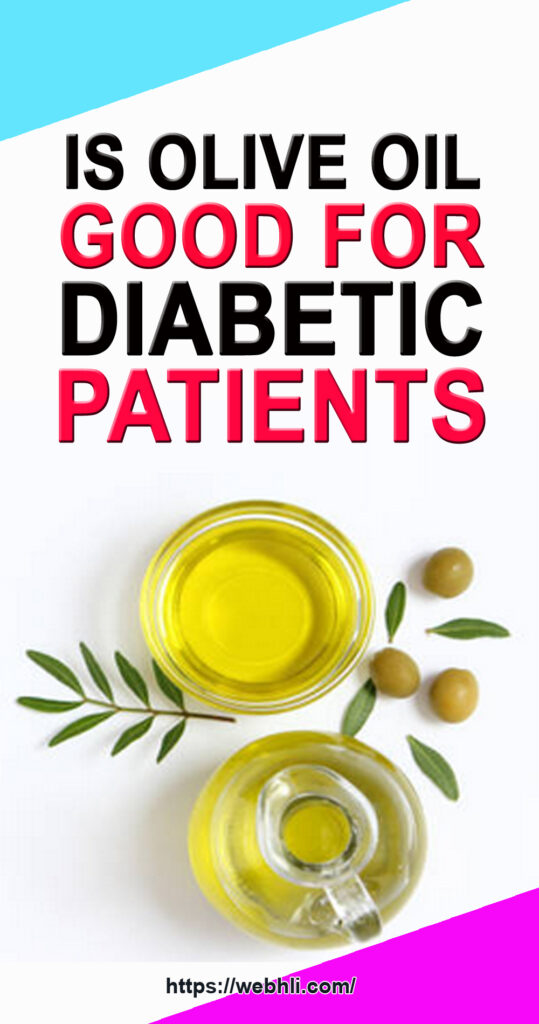
As fats go, olive oil is one of the best oils to use in your eating plan for good health. Oils creep in everywhere: cooking oils, salad oils, and vegetable oils are used in baking and snacks. The Mayo Clinic recommends olive oil when fat is needed anywhere in your Type 2 diabetic meal plan. This is not to say a large stack of white flour pancakes is made healthy by using olive oil when baking them. On the other hand, if you eat pancakes (make mine buckwheat), it is better to use than butter or margarine.
Check out these related articles, too:
Who Has A Higher Risk of Diabetes?
How to Lower Blood Sugar Naturally
Using a Diabetic Blood Sugar Level Chart How to Know If You're in a Normal Range
Are Low Carb Diets Good For Diabetics
Diabetes Food List Healthy Eating for Type 2 Diabetes
In the Mediterranean region, where people eat more olive oil than anyone in other areas, heart disease is rarer than in other parts of the world. One study was mentioned in January of 2016 in Medical News Today. It found anyone who included this oil in their eating plan had a lower risk of developing...
- coronary heart disease,
- high blood pressure,
- inflammation, and
- abnormal metabolism.
Platelets, small blood cells found in blood clotting, can clot within your body, leading to strokes and coronary heart disease. A heart disease called atrial fibrillation can also cause clots to form. In October 2015, the Journal Clinical Nutrition compared people diagnosed with atrial fibrillation on different eating plans. It was found those who followed the Mediterranean diet had better platelet function.
In May of 2015, the journal Burns reported on a study where people used olive oil in their cooking to benefit their skin. Of 100 people hospitalized with burns, those victims who consumed olive oil healed faster than burn victims who used sunflower seed oil.
According to the European Food Information Council, olive oil can be helpful in preventing Type 2 diabetes. Could this oil's anti- inflammatory properties be at work?
- olive oil is made up of fatty acids.
- fats consist mainly of carbon and hydrogen.
- saturated fats have numerous hydrogen atoms, thought to make them dangerous for your heart and blood vessels.
- trans-saturated fats have hydrogen atoms on both sides of a carbon chain and are also not recommended by nutritionists.
- polyunsaturated fats and monounsaturated fats have fewer hydrogen atoms and are considered the best for heart health.
According to the Mayo Clinic in the United States, monounsaturated and polyunsaturated fat play a role in lowering cholesterol, especially low-density lipoprotein cholesterol (LDL), the "bad" cholesterol. They help with blood clotting and normalizing your insulin and blood sugar levels.
Olive oil contains three kinds of fats...
- oleic acid, a monounsaturated omega-9 fatty acid, thought to be heart-healthy, makes up 55 to 83 percent.
- linoleic acid, a polyunsaturated omega-6 fatty acid, makes up around 12 percent. Linoleic acid is thought by some to be heart-healthy, although this has come into question recently.
- palmitic acid, a saturated fat, makes up about 9 percent.
As you know by now, all fats and oils are loaded with calories: they have 9 calories per gram. This is more than twice the calorie content of protein or carbohydrates, so where it comes to all oils and fats, they are all equally fattening.
Although managing your disease can be very challenging, Type 2 diabetes is not a condition you must just live with. You can make simple changes to your daily routine and lower both your weight and your blood sugar levels. Hang in there, the longer you do it, the easier it gets.
For nearly 25 years, Beverleigh Piepers has searched for and found a number of secrets to help you build a healthy body. Go to http://DrugFreeType2Diabetes.com to learn about some of those secrets.
The answer isn't in the endless volumes of available information but in yourself.
Article Source: http://EzineArticles.com/9392540

 Protected by Patchstack
Protected by Patchstack